What would happen if sharks went extinct?
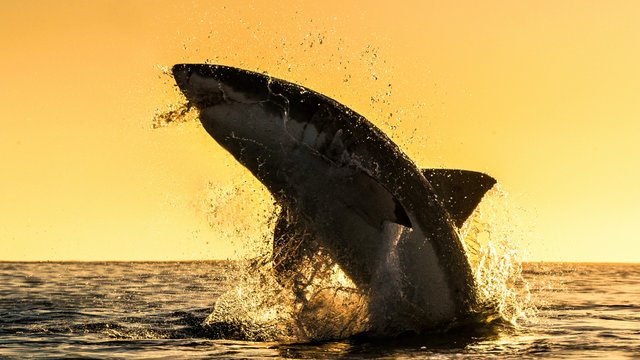
Hello my dear Steemians,
This is the new account “Planetwild” by @stef1 and @myskye. This account is about collecting Steem for the PlanetWild project. That's why I'm going to post once a day. Everything we get together here (Steem, SBD, SP) goes to the project. Then let's see what we can do here...


Sharks are the ocean’s most fearsome creatures—if Hollywood has anything to say about it. Movies like Jaws, the Meg, and Deep Blue Sea have elevated the great white to international infamy—but in reality more than 100 million sharks are killed by us every year. There are more than 500 different shark species alive today, each in charge of protectinging their delicate marine ecosystems and keeping our oceans healthy and biodiverse. New species are still being discovered all the time.
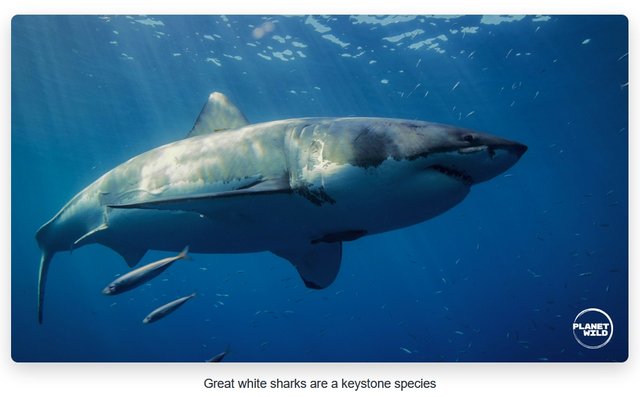
Sharks are a diverse group, coming in all different shapes, sizes, and some are even known to live for hundreds of years. Sharks have been a vital part of our world and its processes for more than 450 million years—that’s around 90 million more years than trees and 190 million years before the dinosaurs. Yet for the first time in all those years, around one third of all chondrichthyans species (sharks and their relatives) are severely threatened from overfishing, accidental bycatch and habitat loss.
But why should we care? What would really happen if all sharks disappeared? How would an extinction that dramatically impact our oceans, world, and us?
Quick Facts:
- Since 1970, we have lost 71.1% of sharks and rays.
- Faster-swimming species, such as hammerheads and requiem sharks, have been particularly affected.
- Humans are killing sharks at a much faster rate than sharks can repopulate.
- Despite regulations, shark mortality rates remain high globally, particularly in areas where destructive fishing methods like gillnets and trawls are used.
- Sharks are keystone species, and play a crucial role in maintaining the health of marine ecosystems.
Of all the known shark and ray species, more than one third are now classified as endangered or critically endangered on the IUCN Red List of Threatened Species. Among the sharks on the IUCN Red List are the Great hammerhead (Sphyrna mokarran), the Basking shark (Cetorhinus maximus), the Sand tiger shark (Carcharias taurus), and the Oceanic whitetip (Carcharhinus longimanus). Sharks and rays now rank second among vertebrates (after amphibians) in terms of extinction threat.
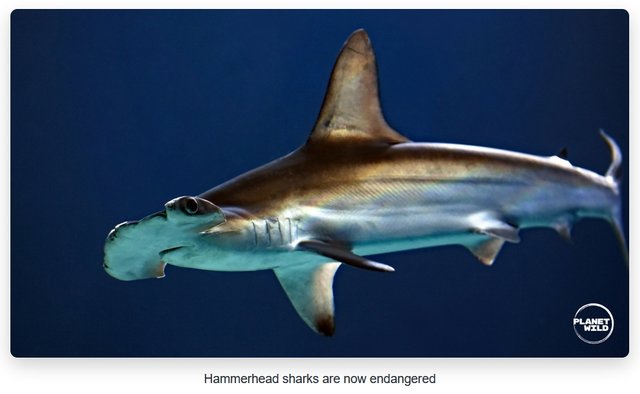
Even more devastatingly, some scientists have concluded that we have already lost a handful of important species. The Lost shark (Carcharhinus obsoletus), Java Stingaree (Urolophus javanicus), and Red Sea Torpedo (Torpedo suessi) have not been recorded for over 80 years, which leads scientists to believe that they have gone extinct. These probable extinctions are some of the first to come as a direct result of overfishing our oceans.
The state of the world’s shark populations is the result of overfishing. Our love of ocean bounty has driven many species of shark to the brink of extinction. Especially fast oceanic species like hammerheads and whitetips often get accidentally caught in commercial nets. This is called bycatch, and kills around 100 million sharks per year.
Overfishing refers to the process of catching fish faster than they’re able to reproduce, leading to a steady decline in fish populations. This practice is particularly detrimental to sharks due to their slow growth, late maturity, and low reproductive rates. Destructive fishing methods like gillnets and trawling are particularly harmful.
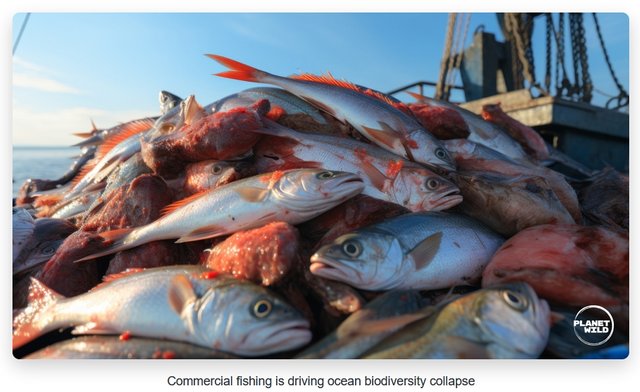
However, the depletion of shark populations isn’t just accidental. The value of shark products worldwide is nearly $1 billion traded per year. Shark fins and shark meat are the most sought after, used in soups and other delicacies around the world. In some cases, sharks caught as in bycatch are kept for their meat and fins.
Bycatch is closely linked to overfishing. Popular seafood like tuna, mackerel, swordfish, and other pelagic fish are sought out by thousands of commercial fishing nets every day. This means we end up indiscriminately capturing millions of species. Alongside sharks, other victims of bycatch include sea birds, sea turtles, juvenile fish, and cetaceans. Evolving fishing technology like Fish Aggregating Devices (FADs), giant purse seine nets, and illegal driftnet fishing which are designed to increase catch volume all contribute to the problem.
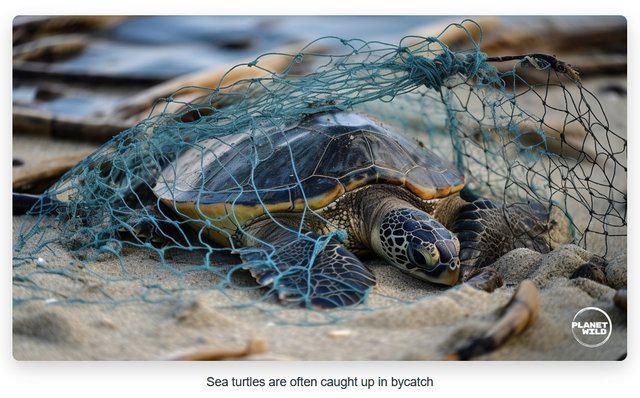
Habitat loss is another problem for shark populations, especially those that rely on coastal habitats like mangroves, kelp forests and reef systems. These habitats are important feeding and nursing grounds for baby sharks and rays, providing safety and shelter from predators. But reef ecosystems are particularly vulnerable right now, as they’re under threat from ocean plastic, pollution, and mass tourism.
While bycatch, overfishing, and ocean pollutants have the most direct impact, these problems are exacerbated by inactivity and lack of shark protection policies. One example is the case of the oceanic whitetip. This shark was once one of the most common sharks in the open ocean, but it is now among the most threatened. This is partly because the regional fisheries management organizations (RFMOs) have failed to fully address the shark’s decline. Despite laws like the 2010 Shark Conservation Act, which prohibits finning, and the creation of ‘shark sanctuaries’ in places like the Maldives, much still needs to be done to help shark populations recover from the last 50 years of exploitation.




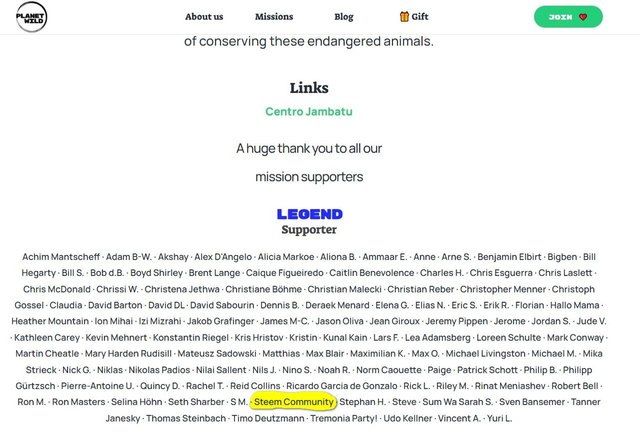
I may not be the biggest "fan" of sharks - but as you said, this is most likely because of how I have been influenced by media and movies. Humans are good at doing that. But regardless of the reason, despite being mostly fearful of them, I can absolutely appreciate their beauty and magnificence - not to mention their importance in the grand scheme of things.
71.1% is a STAGGERINGLY high number and it should absolutely disturb people!!! I would never have guessed such a high number. That is truly, truly sad. We "humans" really do ruin so much of what is beautiful on planet earth. :(
Media are often brainwashing on the shark topic, that's something I can't stand. When I was watching ''Jaws'', I felt quite antagonistic because I cheered for the deadly shark to overtake the planet. On the other hand, I hated how much it was demonized, but we need to remember it's just a movie and its function is a pure entertainment.
I actually love sharks so much and I really wish they can be kept so that it will not go out of distinct
物竞天择,适者生存,人类不应该过度捕捞导致生态失衡,这是危害自然也是危害人类的!
No he tenido la dicha de acariciarlos como lo hago con los peluches de mi sobrina ( les encanta ) pero es algo tan impresionante el solo observarlo que no puedo imaginar que dejarán de existir, debemos poner más control de este grupo de personas que matan sin cesar, para mí son majestuosos el océano esconderá un rey de reyes 🤷 no lo sé pero con la naturaleza todo es creíble y maravilloso ,ojalá termine lo dañino de nuestro planeta!!
Saludos ,siempre a gusto de leer.
I don't understand what you're saying, but if you speak in sharks' defense, then I'm with you on it.
I just really hope some animals should not go extinct because of their significance. One of them is shark
I love sharks they have such a cool design and I would hate if they went extinct, I hate that people hunt sharks for food, but I'm glad some are protected!
They actually have a really cool design, and my favourite one is the hammerhead shark. People often fear those animals, but lots of shark species are naturally shy and skittish, so they wouldn't even approach a human on their own.
When I was a kid, I expressed my love for sharks so hard that other kids often told me I was weird, or even a psycho, but I was genuinely proud of it. I was watching lots of documentaries about them, and my childhood dream was to become a marine zoologist who'd follow sharks' life and make a contribution for keeping them alive and safe on our planet.
Sharks are rather amazing and wonderful creatures, and much maligned as "evil."
As a kid in Denmark, I remember walking on the beach with my dad and we would find empty (dried) shark egg sacs from time to time.
Humans are FAR more destructive and dangerous than sharks!
Your post is manually rewarded by the
World of Xpilar Community Curation Trail
BottoSTEEM OPERATED AND MAINTAINED BY XPILAR TEAM
BottoSteem
Robust Automations on STEEM Blockchain using the Power of AI
https://steemit.com/~witnesses vote xpilar.witness
"Become successful with @wox-helpfund!"
If you want to know more click on the link
https://steemit.com/@wox-helpfund ❤️
I agree with you